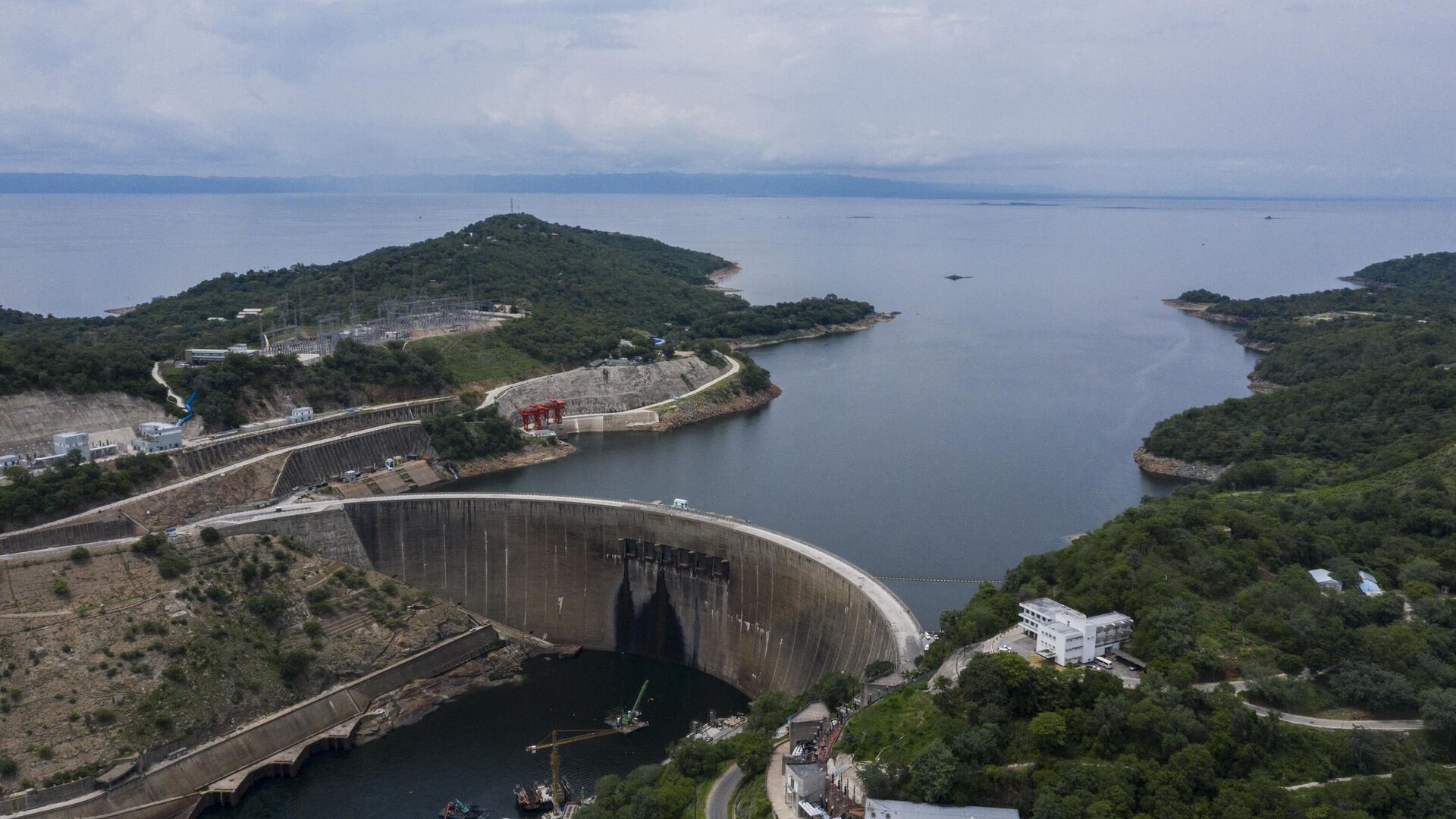https://en.sputniknews.africa/20240308/zambia-will-implement-load-shedding-as-country-faces-severe-drought-1065456367.html
Zambia Will Implement Load Shedding as Country Faces Severe Drought
Zambia Will Implement Load Shedding as Country Faces Severe Drought
Sputnik Africa
Last week, Zambia's President Hakainde Hichilema declared a national disaster and emergency in response to the severe drought that the country is experiencing... 08.03.2024, Sputnik Africa
2024-03-08T17:26+0100
2024-03-08T17:26+0100
2024-04-15T12:08+0200
zambia
southern africa
sub-saharan africa
mozambique
south africa
electricity
energy
energy crisis
gas
drought
https://cdn1.img.sputniknews.africa/img/07e8/03/08/1065458292_0:159:3073:1888_1920x0_80_0_0_740a8f988655cb1c090b769de3faba0b.jpg
Zambia has made the decision to implement electricity rationing in response to the ongoing drought that is severely affecting much of Southern Africa, Victor Mapani, the managing director of ZESCO, a state-owned power utility, announced during a press briefing on Thursday. Load shedding is implemented to ensure the ongoing stability of the national power grid, the post added.There will be daily load shedding lasting for eight hours starting from the beginning of next week, according to Mapani, who attributed the decision to the reduced water levels at Kariba Dam, the primary source of hydroelectric power in Zambia.Furthermore, he stated that Zambia would continue importing power from Mozambique in order to mitigate the energy shortfall on the economy.Mapani also recommended that users should consider alternative sources of energy, for example, use gas for cooking. On the last day of February, President Hichilema classified the drought as a national emergency and called upon both local and international partners to assist in combating its impacts.Another country in the region, South Africa, is also experiencing an energy crisis that has led to frequent and extended power outages, which were implemented as a preventive measure to avoid a complete breakdown of the national power grid.The situation, however, has been improving. One of the recent steps to address the crisis was the government's announcement of this year's procurement of 2,500 MW of nuclear energy, converting diesel open cycle gas turbines to gas (which will bring 3,000 MW), and implementation of the rollout of solar photovoltaic with battery storage (4,000 MW), as media reported.*Meta and its products Instagram and Facebook are banned in Russia over extremist activities.
zambia
southern africa
mozambique
south africa
Sputnik Africa
feedback@sputniknews.com
+74956456601
MIA „Rossiya Segodnya“
2024
Christina Glazkova
https://cdn1.img.sputniknews.africa/img/07e7/0b/07/1063380906_0:0:673:674_100x100_80_0_0_79628b4d0cd9f29291a57aa13bbf9e7a.jpg
Christina Glazkova
https://cdn1.img.sputniknews.africa/img/07e7/0b/07/1063380906_0:0:673:674_100x100_80_0_0_79628b4d0cd9f29291a57aa13bbf9e7a.jpg
News
en_EN
Sputnik Africa
feedback@sputniknews.com
+74956456601
MIA „Rossiya Segodnya“
Sputnik Africa
feedback@sputniknews.com
+74956456601
MIA „Rossiya Segodnya“
Christina Glazkova
https://cdn1.img.sputniknews.africa/img/07e7/0b/07/1063380906_0:0:673:674_100x100_80_0_0_79628b4d0cd9f29291a57aa13bbf9e7a.jpg
zambia, southern africa, mozambique, south africa, electricity, energy, energy crisis, gas, drought, emergency, state of emergency, climate change
zambia, southern africa, mozambique, south africa, electricity, energy, energy crisis, gas, drought, emergency, state of emergency, climate change
Zambia Will Implement Load Shedding as Country Faces Severe Drought
17:26 08.03.2024 (Updated: 12:08 15.04.2024) Christina Glazkova
Writer / Editor
Last week, Zambia's President Hakainde Hichilema declared a national disaster and emergency in response to the severe drought that the country is experiencing as a result of the El Niño weather phenomenon, which is a consequence of climate change. Zambia's energy and agricultural security have been significantly affected by the lack of rainfall.
Zambia has made the decision to implement electricity rationing in response to the ongoing drought that is severely affecting much of Southern Africa, Victor Mapani, the managing director of ZESCO, a state-owned power utility, announced during a
press briefing on Thursday.
"ZESCO [...] announces the implementation of planned load shedding measures effective Monday, 11th March 2024, as one of the mitigation measures to address the Power Deficit. This decision comes after careful consideration of the current national energy situation which shows a serious power deficit caused by low water levels in the main storage reservoirs on the Zambezi and Kafue River Basins," the company's post on Facebook* reads.
Load shedding is implemented to ensure the ongoing stability of the national power grid, the post added.
There will be daily load shedding lasting for eight hours starting from the beginning of next week, according to Mapani, who attributed the decision to the reduced water levels at Kariba Dam, the primary source of hydroelectric power in Zambia.
Furthermore, he stated that Zambia would continue importing power from Mozambique in order to mitigate the energy shortfall on the economy.
Mapani also recommended that users should consider alternative sources of energy, for example, use
gas for cooking.
On the last day of February, President Hichilema classified the drought as a
national emergency and called upon both local and international partners to assist in combating its impacts.
Another country in the region,
South Africa, is also experiencing an energy crisis that has led to frequent and extended power outages, which were implemented as a preventive measure to avoid a complete breakdown of the national power grid.
The situation, however, has been improving. One of the recent steps to address the crisis was the government's announcement of this year's
procurement of 2,500 MW of nuclear energy, converting diesel open cycle gas turbines to gas (which will bring 3,000 MW), and implementation of the rollout of solar photovoltaic with battery storage (4,000 MW), as media reported.
*Meta and its products Instagram and Facebook are banned in Russia over extremist activities.


